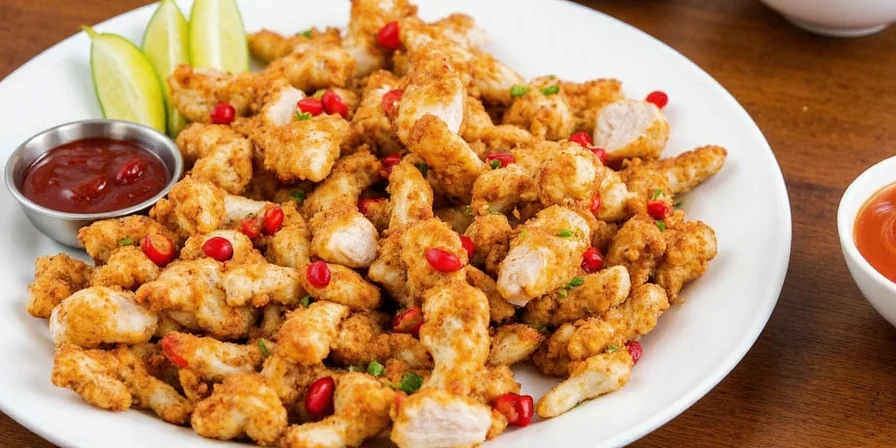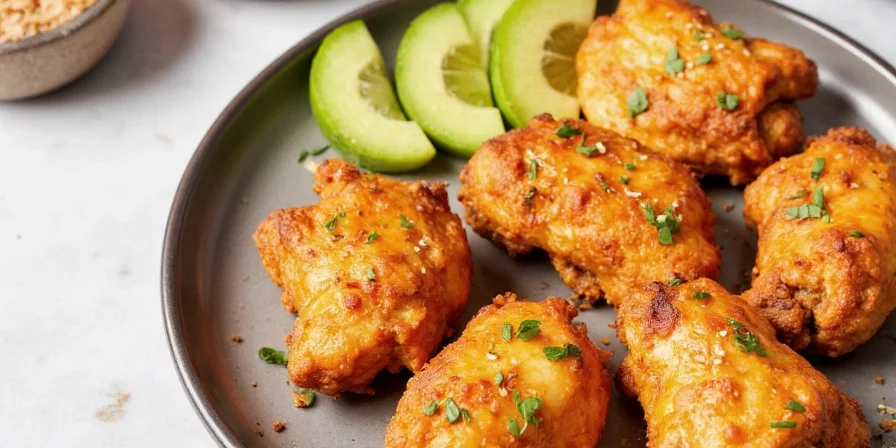10 Unbelievable Spice Combos That Will Make Your Buttermilk Chicken Tenders Taste Like Magic!
Chicken tenders are a classic comfort food, but when paired with the creamy tang of buttermilk and some spice wizardry, they transform into something truly extraordinary. This is your ultimate guide to elevating that crispy, juicy favorite into a flavor explosion that will make your taste buds do the cha-cha.
Table of Contents
- Why Buttermilk?
- Top 10 Innovative Spice Pairings
- The Perfect Buttermilk Chicken Tenders Recipe
- Pro Tips for Crispy, Flavor-Packed Results
- The Science Behind the Spice Magic
- Final Thoughts & Flavor Fusion Fun
Why Buttermilk? It’s Not Just a Trend!
Before we dive into the spice party, let’s take a second to appreciate the unsung hero: buttermilk. This tangy, slightly thick dairy liquid does more than just keep your chicken tender — it also acts as a flavor carrier and pH balancer. The mild acidity helps break down muscle fibers in the chicken, making every bite fall-apart soft. Plus, it helps seasonings stick like nobody's business.

Top 10 Innovative Spice Pairings for Buttermilk Chicken Tenders
Ready to spice things up? Here are our top picks for spice combos that will turn your chicken tenders from “meh” to “WOW.”
- Paprika + Smoked Garlic Powder – Sweet and smoky, this combo adds depth without overwhelming heat.
- Cayenne + Lemon Zest – A spicy citrus kick that’s perfect for summer or with a cool ranch dip.
- Cumin + Coriander – Middle Eastern flair that brings warmth and earthiness to each bite.
- Garam Masala + Chili Flakes – Indian-inspired spice blend meets fiery crunch.
- Dill + Old Bay Seasoning – A seafood twist that pairs well with tartar sauce.
- Turmeric + Black Pepper – Anti-inflammatory powerhouse with a golden hue and earthy bite.
- Fennel Seeds (ground) + Thyme – Mediterranean magic with a subtle anise note.
- Espelette Pepper + Rosemary – French country vibes meet subtle heat and aroma.
- Chinese Five Spice + Sesame Oil – Sweet, savory, and umami-rich with an Asian fusion twist.
- Habanero Powder + Mango Powder (Amchur) – Sweet heat that’s bold, fruity, and unforgettable.

The Perfect Buttermilk Chicken Tenders Recipe
You’ve got the spices. Now let’s get cooking! Here’s a simple yet foolproof recipe to bring those flavors to life:
| Ingredient | Quantity | Purpose |
|---|---|---|
| Chicken tenders | 1 lb | Main protein — juicy and flavorful base |
| Buttermilk | 1 cup | Marinade for tenderness and seasoning adhesion |
| Egg | 1 large | Helps bind breading to chicken |
| All-purpose flour | 1 cup | Base for breading and crispiness |
| Garlic powder | 1 tsp | Umami boost |
| Salt | 1 tsp | Seasoning backbone |
| Selected spice combo | To taste | Your chosen flavor explosion |
| Oil (vegetable/canola) | Enough for frying | For achieving that perfect golden crust |
Step-by-Step Instructions
- Marinate: In a bowl, toss chicken tenders with buttermilk and a pinch of salt. Let sit for at least 30 minutes, ideally overnight.
- Prepare breading station: Mix flour, garlic powder, salt, and your chosen spice combo in one bowl. Beat the egg in another.
- Dredge: Dip each marinated tender in the egg, then coat thoroughly in the seasoned flour mix.
- Fry: Heat oil in a deep skillet or fryer to 350°F (175°C). Fry tenders for 4–5 minutes per side until golden brown and cooked through.
- Drain & Serve: Place on a wire rack or paper towel-lined tray. Serve hot with your favorite dipping sauces!

Pro Tips for Crispy, Flavor-Packed Results
Want to level up even further? Try these tricks from the pros:
- Double dredging: Coat once, let rest, then re-dip for extra crunch.
- Use baking powder: Add ½ tsp to the flour mix for ultra-crispy skin.
- Rest before frying: Let breaded tenders sit for 10–15 minutes so the coating sets.
- Add carbonation: Swap water with seltzer in the batter for a lighter, crispier crust.
- Don’t overcrowd the pan: Fry in batches to maintain oil temperature and avoid soggy tenders.

The Science Behind the Spice Magic
Ever wondered why certain spices work so well together? It’s not random — it’s chemistry! Here’s a quick breakdown of how these pairings tickle your taste buds:
| Spice Combo | Key Flavor Compounds | Flavor Synergy |
|---|---|---|
| Cayenne + Lemon Zest | Capsaicin (heat), Limonene (citrus) | Heat balances zest; brightness cuts through spice |
| Garam Masala + Chili Flakes | Eugenol (clove), Cinnamaldehyde (cinnamon), Capsaicin | Warming spices + fire = rich complexity |
| Chinese Five Spice + Sesame Oil | Anethole (star anise), Linalool (Sichuan pepper) | Sweet, sour, salty, bitter, umami — all five senses dance |
| Espelette Pepper + Rosemary | Carotenoids (colorful pigments), Rosmarinic acid | Smoky heat meets aromatic herb — like a Provençal picnic |
| Habanero + Amchur | 6-Gingerol (fruitiness), Citric acid (tang) | Tropical heat with a mouthwatering edge |
Final Thoughts & Flavor Fusion Fun
The beauty of the humble buttermilk chicken tender lies in its versatility. With a little spice knowledge and creativity, you can transport your taste buds around the world — all while staying in your kitchen.
So go ahead: play mad scientist with your spice rack, try unexpected combinations, and don’t be afraid to experiment. After all, the best recipes come from a dash of curiosity and a whole lot of love.

Flavor Fusion Challenge 🌶️🍴
Try this fun game next time you're cooking:
- Pick one base (buttermilk chicken tenders).
- Spin a spice wheel or roll a dice to pick a mystery spice combo.
- Test it out and rate the flavor experience.
- Keep a flavor journal — who knows, you might discover the next big thing!
Bottom Line
Buttermilk chicken tenders are the canvas, and spices are your paintbrushes. Don’t just follow recipes — create them. Whether you’re feeding a crowd or treating yourself to a solo dinner, a little spice magic goes a long way.











 浙公网安备
33010002000092号
浙公网安备
33010002000092号 浙B2-20120091-4
浙B2-20120091-4